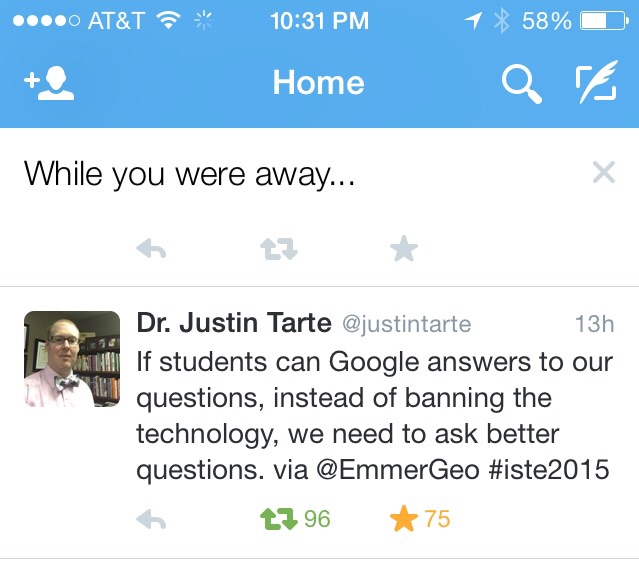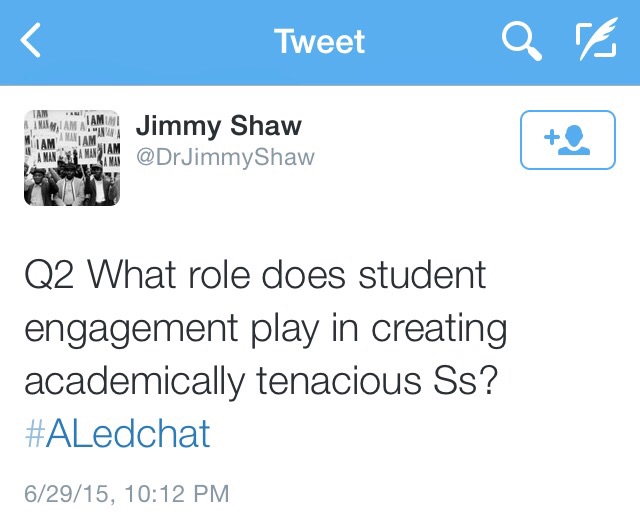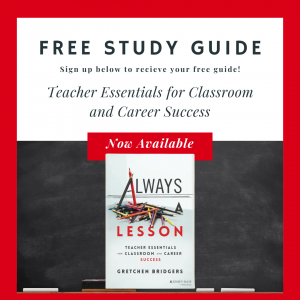I Tip my Hat to you Twitter!
I had a double aha moment today…double! I’ve always said the best professional development for me as a teacher has come from Twitter (specifically Twitter chats).
[See my previous posts on Twitter’s influence on teacher development here: Twitter Chat Firstie, Twitter Chat How-To, 5 Twitter Hashtags Worth Following .]
I know you might think its crazy that a social media platform could actually provide quality professional development, but it can. Let me explain how.
Twitter is a connecting tool, or more clearly a ‘networking’ tool. It allows individuals to connect globally without the logistical stress to do so. When you have lots of powerful minds meeting in one place, magic happens.
I have interacted with numerous educators in my district, state, nation, and around the globe through Twitter. I couldn’t have made that statement just a few years ago. Technology has allowed us many opportunities to learn in new ways, one of which is learning through meaningful connections through social media.
Let me give you an example of the level of quality discussion opportunity currently occurring on Twitter in the field of education:
1) Tweet 1: Dr. Justin Tarte shares a meaningful nugget to explore the level of teacher questioning:
In his statement, he cites another educator on Twitter referred to as a ‘Science Superhero’ named Ed Emmer (@EmmerGeo) who originally shared the idea. Giving credit where credit is due builds trust and safety in these professional connections.
He also cites a twitter chat thread #ISTE2015 (International Society for Technology Conference) so that others chatting about this topic see his contribution in their Twitter feed. This is a great way to extend your connection reach by including a particular group of people when you are posting about similar topics of interest – google twitter hashtags for ones that fit your interest or niche.
The reason this tweet caught my attention is because technology is an ever present obstacle in current classrooms. Using technology as a learning tool can be powerful if used correctly. Dr. Justin Tarte speaks about this. If a student can easily gain the answer to our question through google, the question is of a lower level not requiring thinking. Teachers need to devise questions where there isn’t one right answer or the answer isn’t easy summed up in a quick answer on google. Researching multiple texts to formulate one’s own answer ensures students are thinking at high levels and using technology to gain access to information to help provide context without providing the end result.
Thus my aha moment- we need to use technology to provide enriching opportunities for students to see the power that exists at their fingertips to strengthen their knowledge base and contribute meaningfully in a classroom environment.
2) Tweet 2: Dr. Jimmy Shaw shares a question during an ed chat that links the unique adjective ‘tenacious’ to S engagement:
Most likely, if Jimmy is scripting the question he is leading this particular Twitter chat on this day. Providing insightful questions for teachers to respond to and facilitating the conversation thread that will follow is the sign of a great educational leader. He cites the Twitter chat thread #ALedchat (Alabama Ed Chat) to ensure all the questions and answers on this topic are organized through this hashtag.
Jimmy brings up a unique perspective in looking at student engagement. He coins this type of student behavior as ‘academically tenacious.’ Talk about a powerful combination of words! Not only does it have a ring to it but it denotes a high caliber of interaction. Students engage together academically with tenacity. How do we create this? How do you motivate students? Once they are motivated, how do you create a sense or urgency to peak their motivation to increase to a new level of drive?
Because of all of my questions I had to go look at other educator’s responses:
- Darrin Lett @darrinlett “Academic Tenacity- Learning with a persistence to overcome any obstacle.”
- Jacquelyn Flowers @JackieAFlowers “Academic tenacity is about a mindset of learning and the productive struggle it takes to get there!”
- Christy Bice @Cbice_1 “If we want students to seek growth, we must provide them the opportunities and a supportive environment.”
- Ryan Huels @huels_ryan “Ss will be tenacious in whatever they do albeit misbehavior or doing meaningful work. Quality Ts can determine which that is.”
- Kelli R. Nichols @kelnichols “Academic tenacity comes with a willingness to fail and the ability to persevere.”
These educators helped define tenacity in terms of being presented with a challenge and pushing through to achieve success. That’s the motivation piece I was talking about- persevere when it gets hard. How do you make a student want to do that? These educators helped explain that as well, mentioning providing a safe place to work through a rigorous task. This, of course, requires relationships with students. They won’t work if they don’t feel safe. They won’t feel safe without a personal connection.
Aha moment- Creating engaging activities is different from creating tenacious learners who engage together. Teachers must plan and execute the opportunity only after building a safe place through forming solid relationships.
Both tweets mentioned brought me insight. This insight is what I refer to as my personal professional development. It is a topic I came across that interested me and I dug deeper to gain understanding. I now walk away with a greater sense of purpose in teaching and creating mindful learners. I would rather engage with these types of educators in this manner than attend a “Sit and Get” professional development session required by my school district.
I also want to add that this post isn’t to say that only those with a doctorate degree are worth connecting with or are the only ones that bring worthwhile content to the social media platform of Twitter. I find new teachers bring joy, excitement and new ideas so I like connecting with them. I also like connecting with administrators because their perspective on teaching provides a new lens in preparing quality learning experiences. Neither have to have a particular degree, its about the value they bring to the table based on their perspective and experience.
[Learn how to connect with knowledgeable individuals in your niche with my FREE Webinar. Click here.]
What would your response be to these two tweets if you were participating in these chat opportunities?





 Get Edu-Tips, Freebies and grab your FREE Study Guide for Gretchen’s New Book!
Get Edu-Tips, Freebies and grab your FREE Study Guide for Gretchen’s New Book!